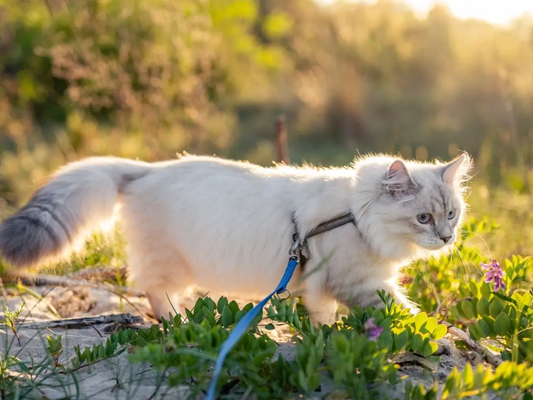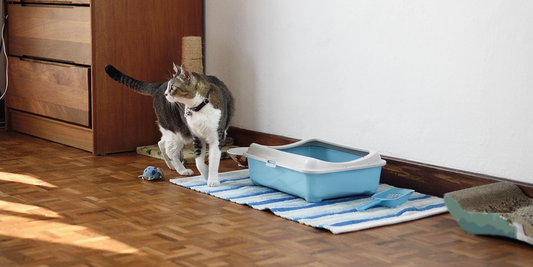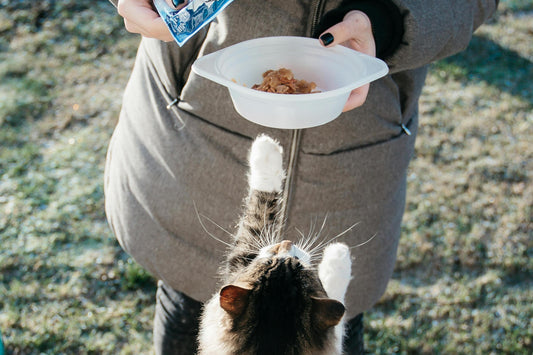Introduction
Cats are beloved companions, known for their independence and resilience. However, just like humans, they can fall ill too. As a responsible pet owner, it's crucial to be able to recognize the signs of a sick cat promptly. In this comprehensive guide, we'll explore various aspects of cat health, from common symptoms to preventative measures, ensuring your furry friend stays happy and healthy.
How to Tell When a Cat Is Sick?
Caring for your cat's health starts with being observant. Here are some key signs that may indicate your cat is unwell:
1.Lethargy
Cats are typically energetic creatures. If you notice your feline friend is unusually lethargic and disinterested in play or interaction, it could be a sign of sickness.
2.Changes in Appetite
A sudden loss of appetite or an increase in hunger can be a sign of underlying health issues. Monitor your cat's eating habits closely.
3.Weight Fluctuations
Unexplained weight loss or gain may indicate an underlying problem. Regularly weigh your cat and consult your veterinarian if you notice significant changes.
4.Vomiting and Diarrhea
Occasional hairballs are normal, but persistent vomiting or diarrhea can be a sign of gastrointestinal issues or other illnesses.
5.Changes in Behavior
Pay attention to unusual behavior, such as increased aggression, hiding, or excessive grooming. These changes may signal distress or discomfort.
6.Respiratory Problems
Wheezing, coughing, or labored breathing should not be ignored. Respiratory issues can be a sign of various illnesses.
7.Dental Problems
Bad breath or reluctance to eat hard food may indicate dental issues. Dental health is crucial for your cat's overall well-being.
8.Skin and Coat Issues
A dull coat, bald patches, or excessive scratching can point to allergies, parasites, or skin conditions.
9.Litter Box Changes
Changes in litter box habits, such as frequent urination or straining, may indicate urinary tract problems.
10.Eye and Ear Abnormalities
Redness, discharge, or squinting in the eyes, and ear discharge or head tilting should be examined by a vet.
11.Foul Odors
Persistent bad odors can result from dental issues or skin infections. Address these promptly.
12.Dehydration
Check for signs of dehydration, like sunken eyes and dry gums. Ensure your cat has access to clean water.
13.Fever
A cat's normal body temperature is higher than humans'. A fever above 102.5°F (39.2°C) may indicate illness.
14.Changes in Vocalization
Excessive meowing or a sudden change in vocalization patterns can be indicative of distress.
15.Grooming Changes
Cats are meticulous groomers, so any change in grooming habits should be noted.
16.Mobility Issues
Stiffness, limping, or reluctance to jump can be signs of arthritis or injuries.
17.Allergies
Excessive sneezing or itchiness may signal allergies, which can affect cats just like humans.
18.Fecal Issues
Pay attention to changes in stool consistency, color, or blood in the feces.
19.Neurological Symptoms
Tremors, seizures, or disorientation require immediate veterinary attention.
20.Nasal Discharge
Persistent nasal discharge may be a sign of respiratory infections.
21.Changes in Tail Position
A cat's tail position can indicate mood and health. A drooping tail might signify discomfort.
22.Swelling
Any unexplained swelling, especially in the abdomen, should be examined by a vet.
23.Feline Lower Urinary Tract Disease (FLUTD)
Frequent urination, straining, and crying while urinating are common signs of FLUTD.
24.Dental Problems
Dental health is crucial. Look out for inflamed gums, bad breath, or difficulty eating.
25.Itchy Ears
Ear infections can cause excessive scratching and discomfort.
FAQs
Q: Can I treat my cat's illness at home?
A: While some minor issues can be managed at home, it's essential to consult a veterinarian for a proper diagnosis and treatment plan.
Q: How often should I take my cat to the vet?
A: Regular check-ups are recommended at least once a year, but consult your vet for a personalized schedule based on your cat's age and health.
Q: What vaccinations does my cat need?
A: Core vaccines include those against feline herpesvirus, calicivirus, and panleukopenia. Non-core vaccines may be recommended based on your cat's lifestyle.
Q: Can I give my cat human medications?
A: No, human medications can be harmful to cats. Always consult a vet for appropriate treatments.
Q: How can I prevent common cat illnesses?
A: Maintain a healthy diet, provide regular exercise, keep up with vaccinations, and ensure a clean living environment.
Q: Should I get pet insurance?
A: Pet insurance can provide financial peace of mind in case of unexpected veterinary expenses.
Conclusion
Your cat's health is paramount, and being proactive about their well-being is essential. Regular observation, prompt vet visits, and a loving environment will help ensure your feline companion lives a happy and healthy life. Remember, if you suspect your cat is sick, consult a veterinarian for proper diagnosis and care.








